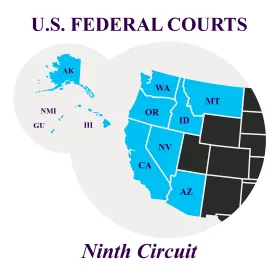Nanouk v. United States, 974 Fed. 3d 941 (9th Cir. 2020), involved a federal tort claim suit for government negligence in contamination from a nearby military base in Alaska onto private property.
Plaintiff used her property (160 acres) for hunting, fishing, berry-picking in the 1960s and to build a cabin in the 1980s. Access to the cabin was by a trail from a main road and through a former military facility closed in 1978.
In the 1980s, the military was informed the former base was contaminated by polychlorinated biphenyls (PCBs) and it began a slow remediation process. However, between 1980 and 2003, PCBs left on the former base migrated into plaintiff’s property via a “hot spot” on the trail. Plaintiff’s vehicles picked up PCBs and carried them to her property. In 2003, Plaintiff learned of the contamination after reporting odors to the military, who investigated the property and reported back on high levels of PCBs.
Plaintiff sued under the Federal Tort Claims Act in 2015, for trespass and negligence, 28 U.S.C. § 1346 (FTCA). The FTCA waives sovereign immunity and allows a tort suit against the United States for negligent or wrongful acts or omissions of government employees (but not for independent contractors). There are various time limits and requirements for an administrative claim as predicates for the waiver of sovereign immunity. The waiver has exceptions including for “discretionary functions.” The district court had dismissed the suit based on “discretionary functions,” but the Ninth Circuit reversed.
The “discretionary function” exemption or defense involves a first step — was the act or omission discretionary in nature (involving “judgement or choice”), and a second step if step one is met — whether the discretion involved was of a policy nature intended to be excepted from suit under the FTCA (grounded in “social, economic, or political policy”).
There were three negligent government delays or failures in the case: (1) the Air Force activity from 1957–1978 failed to prevent its contractor from dumping PCBs on the ground; (2) after base closure in 1978, the Air Force abandoned the military site, leaving behind PCB barrels to leak; and (3) after redirected remediation efforts in 1990, the Air Force failed to discover and timely clean up the “hot spot.” This case shows the government’s often three speeds: glacial, standstill, and reverse.
The Ninth Circuit held that PCB disposal during base operations involved government contractors’ actions (not direct government employee actions), not covered by the FTCA. Plaintiff then asserted failure of the Air Force to properly supervise its contractors. The Court found no specific mandatory statute, regulation, or policy covered the Air Force’s supervision of waste disposal by the contractors. There was discretion left on the degree of government supervision over contractors, which involved tradeoffs. This lack of proper supervision falls under steps one and two of the “discretionary function” exemption. Likewise, the abandonment of the base and subsequent slow remediation efforts were under no specific mandatory law to expedite. When the Defense Department promulgated a remediation policy (Defense Environmental Restoration Program) in 1983, it used “triage,” remediating the worst sites first. Thus, as a matter of policy, the closed Air Force base lacked priority for an expedited cleanup and was excepted from FTCA liability.
The third allegation is that the government negligently, from 1990 on, delayed discovery and cleanup at the hot spot. Although the government, absent mandatory schedules, had initial discretion on when and how to clean up, but no facts showed a social, economic, or political policy was involved in the 13 years of delay itself. The government only plead limited resources. The discretionary function exemption did not excuse negligent government failure. A general plea of limited government resources was alone insufficient after 1990. More timely action on the “hot spot” was needed. The case was vacated and remanded.
This case shows that government negligence in taking untimely action, without more evidence, is not an excepted discretionary action. Counsel should examine specific government policies, rules, and laws in effect over a timeline to see what is specifically mandatory or discretionary in a case. For instance, failure of a government employee to process an insurance allotment (later barring insurance coverage), is likely actionable. However, “triage” in the government’s handling of problems such as new rules, new projects, construction schedules, tree management, etc. is likely discretionary. Thus, many of the government’s slow speed modes may remain unactionable legally.



 />i
/>i

